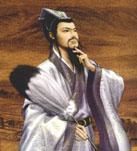

In an early post I said I'd use this blog to explore the differing success of human societies, in terms of material wealth and power. I've let that project slide, but the first instalment in a televised production of Jared Diamond's bestselling Guns, Germs and Steel has refired the historian in me. Not the show itself, which suffers from an excess of hammy reenacting and closeups of Diamond speaking in thoughtful monotones (he's a more engaging writer than TV personality). It's the question that the series grapples with; the question put to Diamond by his New Guinean interlocutor, Yali, which I'll paraphrase as follows -
"Why you white man have so much cargo, while we New Guineans have so little?"
By "cargo" Yali meant material possessions. His question lies at the heart of the 'new economic history' that has opened up fresh fronts for the culture wars - by exporting them backwards in time. Does Western dominance stem from culture, geographical accident or some combination of the two? Do nations have the power to shape their own destinies, or are some fated to be rich and others doomed to remain poor? Over the coming months I'll be probing the roots causes of the wealth and poverty of nations.
I'll try to avoid the Europhile/Europhobe distinction that hamstrings scholarship in the field and reduces the whole endeavour to a question of "are you for Western superiority, or aginst it?". The amount of flak Diamond's book has attracted is a case in point. His claim that had New Guinea been blessed with nutritious crops and large domesticable animals, its inhabitants would have gone on to invent helicopters riles the Right's defenders of Western exceptionalism. But his further assertion that they would, like the Europeans, have used their advantages to destroy less geographically endowed peoples draws the ire of 'Leftist' academia.
The vehemence of the attacks on Diamond symptomises the closing of the academic mind that seems to proceed inversely with our accumulation of knowledge. Rather than disdaining him as an interloper - Diamond is a biologist by training, not a historian - he should be valued for bringing in some cross-disciplinary perspective. Instead his book has become a football with which to score points for preexisting opinions.
Voltaire said that when two sides argue endlessly about a given issue, they are both wrong. A better conclusion is that the truth lies somewhere in between.

2 comments:
I've been reading your blog (or bits of it) for a while now. Both you and the blog are very interesting. I've run out of things to say, apart from that I do envy you.
Glad to have you around, a.(nonymous).
Feel free to comment; anything non-derogatory is welcome, with a premium on constructive criticism
This blog is about indulging various interests rather than beating a political drum, though I do try for some linearity. I glad someone else appreciates the randomness...
Post a Comment